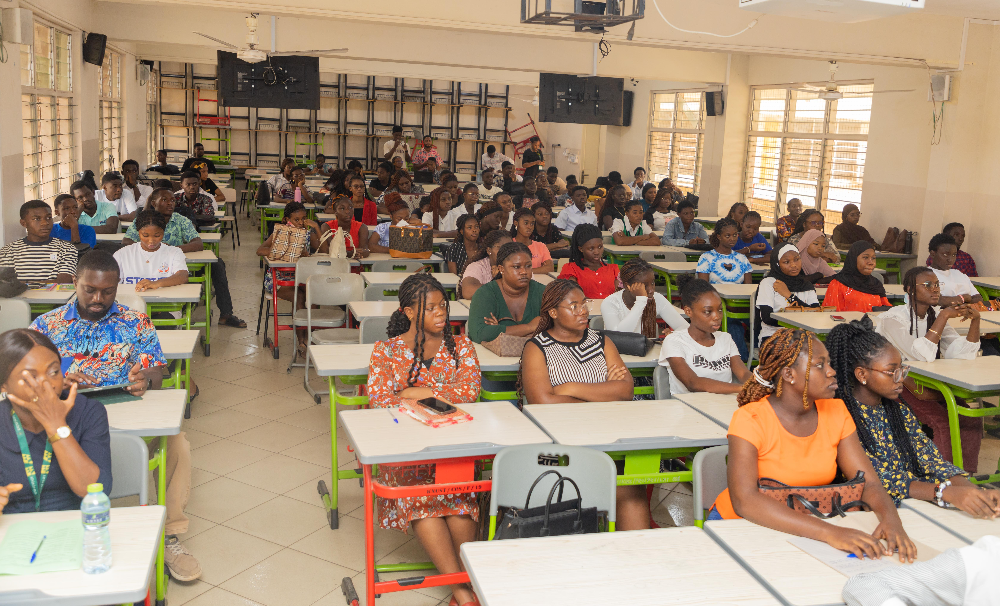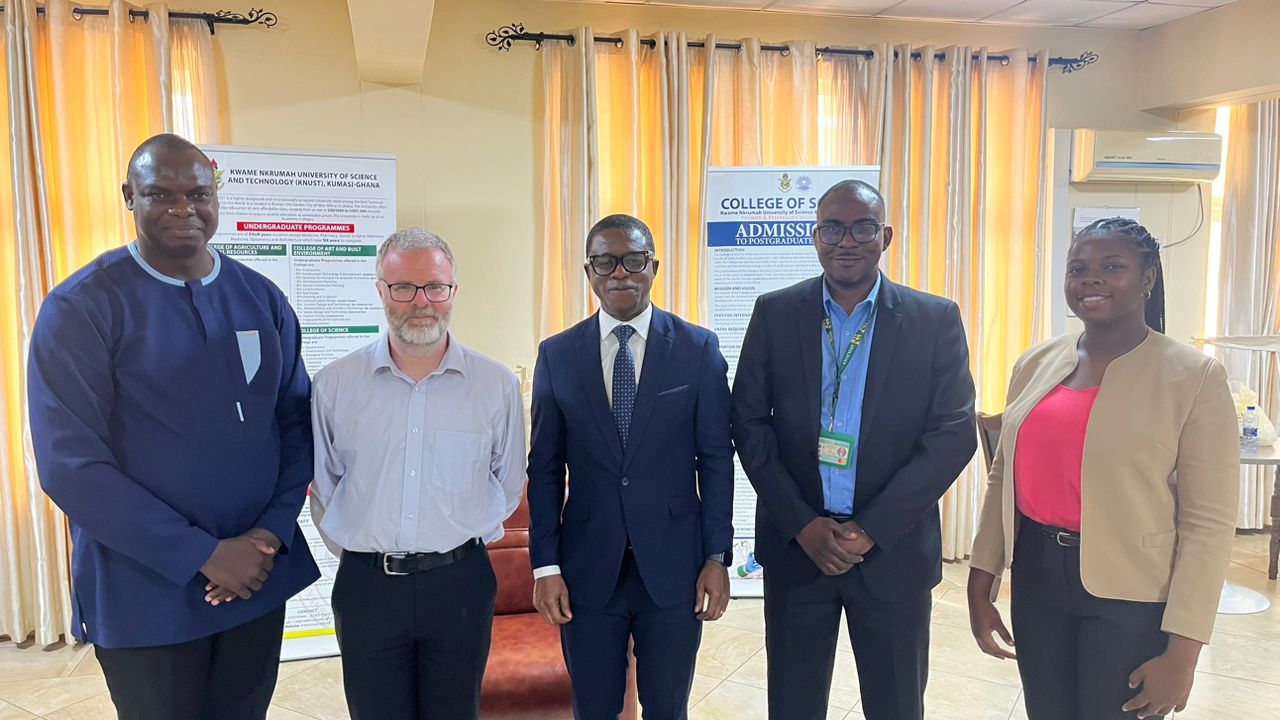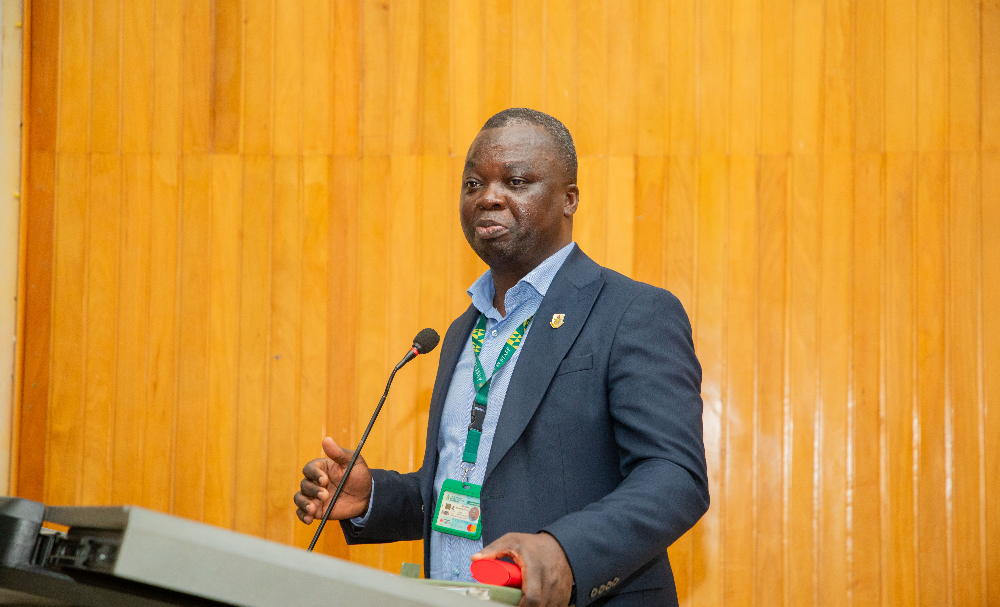Faculty of Biosciences Seminar; Lecturers on PhD Programs present research findings
The Faculty of Biosciences, College of Science (CoS), KNUST organized a seminar for senior members pursuing Ph.D. programs to share their research findings with Faculty members on the 15th of February, 2023 at the Allotey Auditorium, Aboagye Menyeh Complex, KNUST. The seminar was chaired by Prof. Fareed Kow N. Arthur, from the Department of Biochemistry and Biotechnology. The Vice Dean, Prof. John Larbi, representing the Dean and himself, was given a chance to address the audience, and his remarks emphasized the relevance of the seminar series for both faculty members and postgraduate students. He urged both faculty members and students to take advantage and attend such seminars to learn, and foster networking for potential collaborations.
The presenters were Mr. Martin Arkoh from the Department of Theoretical and Applied Biology, Mr. Collins Afriyie Appiah from the Department of Biochemistry and Biotechnology, and Mr. Tchiakpe Michel Pascal from the Department of Optometry and Visual Science.
Mr. Arkoh presented on the ‘Determination of the Physicochemical and Primary Productivity levels of the Owabi Lake, Ghana’. He determined the physical, chemical, chlorophyll 'a' contents, Gross and Net Primary Productivities and free oxygen levels of the Owabi Lake, using standard protocols. According to the presenter, although the values for the physicochemical readings were higher at the upper portion of the lake due to the influence of the feeding rivers, they were all within the WHO limits/ranges for wetland waters. Chlorophyll 'a' content was very high and above the WHO limit, a consequence of the hyper-eutrophic state of the lake. The presenter concluded that Owabi Lake was found to be non-resident and unsustainable as a result of the high chlorophyll 'a' content and very low productivity levels.
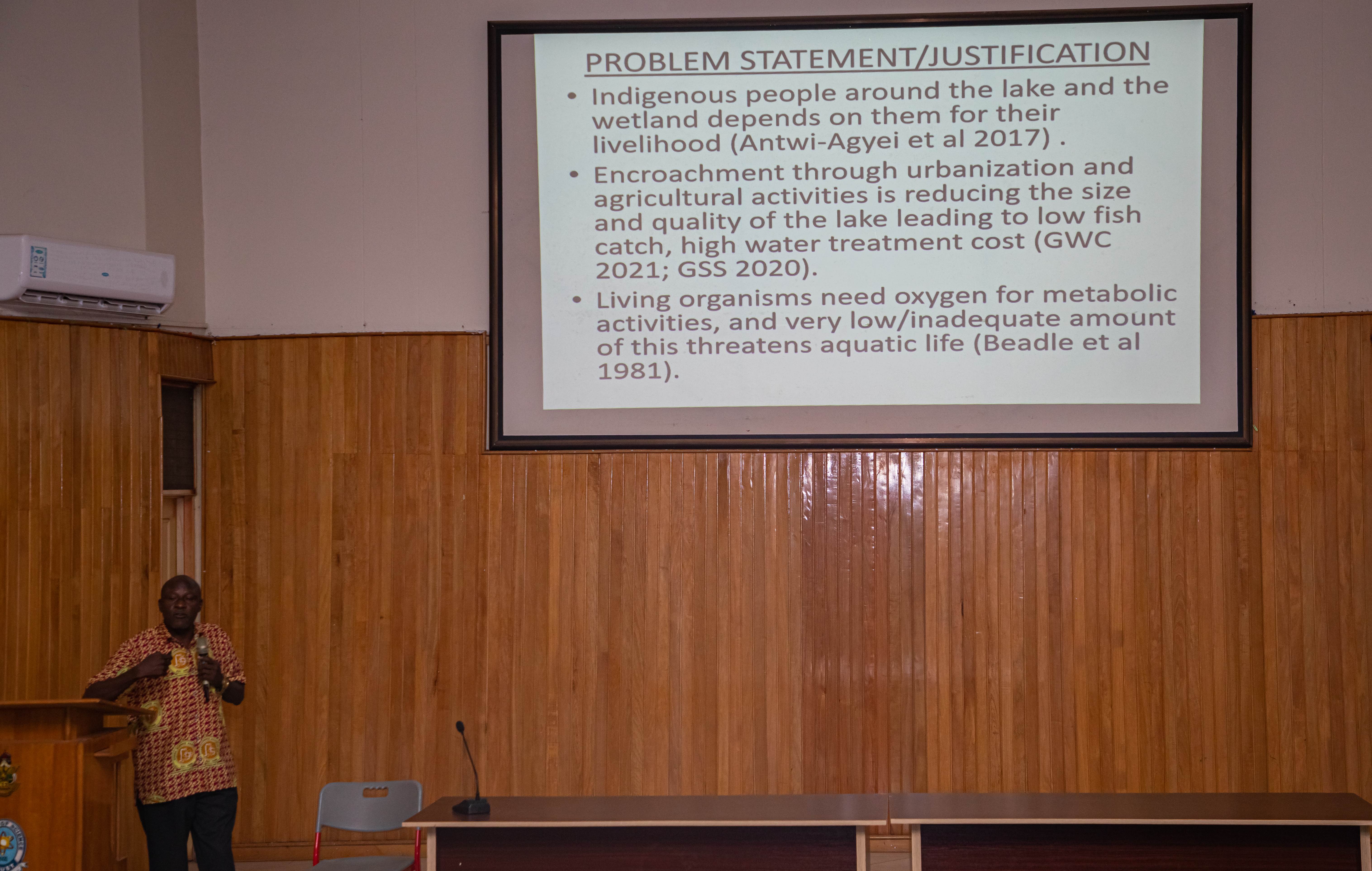
Mr. Tchiakpe Michel Pascal presented on “Early detection of primary open-angle glaucoma (POAG) in first-degree relatives of POAG patients: the biomarker approach”. He gave a synopsis of his research because he is currently gathering field data. He explained that glaucoma is a neurodegenerative disease characterized by the death or loss of retinal ganglion cells and their axons, leading to irreversible vision loss. The current estimated global population of POAG is 68.56 million and Ghana is second globally in terms of glaucoma prevalence. He underlined that because most diagnostic techniques for its identification only focus on the eye, glaucoma cannot be detected in Ghana using other biological/biochemical studies or indicators in the body. His study will, therefore, explore the possibility of detecting glaucoma biomarkers through clinical laboratory examination.
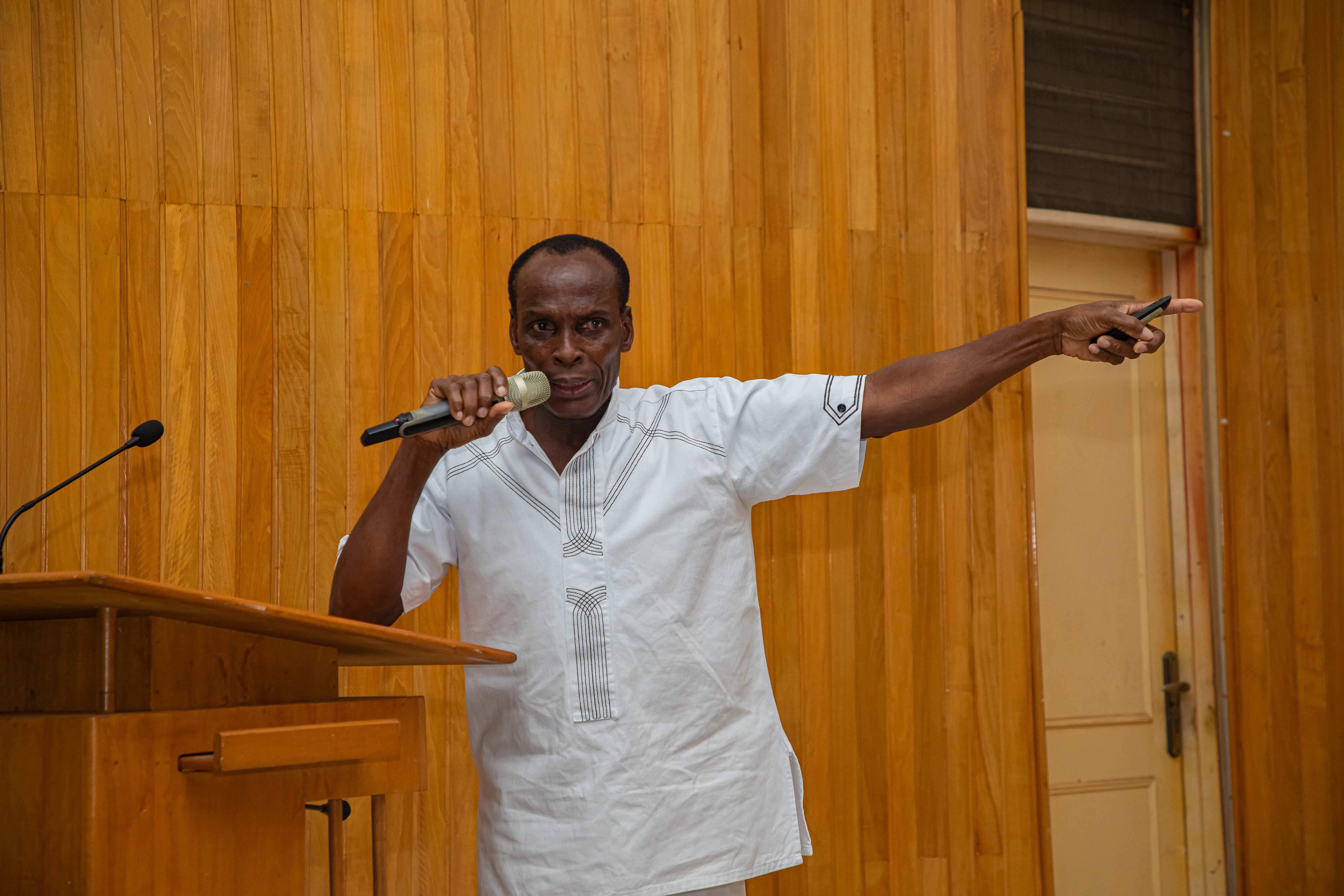
The review of previous research projects revealed that bio-cations such as Mg²⁺, Ca²⁺, Zn²⁺ and Fe², as well as citrate, play a role in the pathogenesis of POAG (Fraenkl et al., 2011; Izzotti et al., 2006). Therefore, the main objective of this research is to determine the use of plasma citrate and some neurodegenerative bio-cations as biomarkers for early detection of POAG in first-degree relatives of POAG patients.
The last presenter, Mr. Collins Afriyie Appiah, also presented his synopsis on ‘The effect of Bridelia tea consumption on oxidative status in people living with diabetes’. Oxidative stress, the state where there is an imbalance between the antioxidant defence system and free radicals in the body, is known to worsen glycaemic controls in people with diabetes and hasten the onset of complications such as heart disease, nerve damage and impaired vision. Antioxidants are substances that ameliorate oxidative stress, and they can be obtained from synthetic nutritional supplements or natural plant sources. Naturally-occurring plant antioxidants have been of interest to scientists in recent years because of their low toxicity compared to synthetic ones.
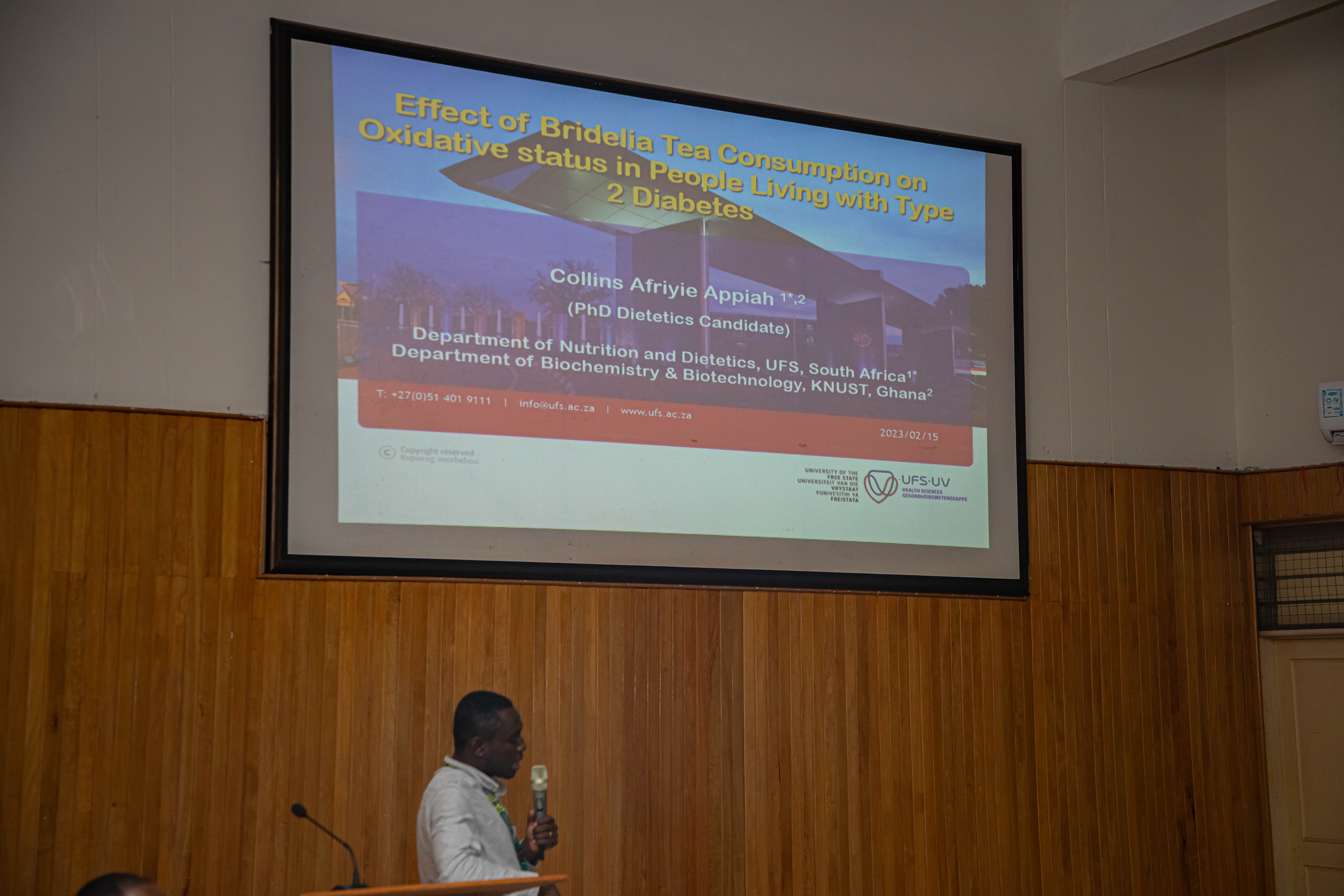
For decades, Bridelia ferrugenia (Bridelia), a shrub, has officially been used for the management of diabetes in Ghana. Thus, his study seeks to determine the antioxidant activity and phenol content of Bridelia tea and whether the intake of the tea in people with type 2 diabetes (PWT2D) is associated with changes in oxidative status and antioxidant capacity. Markers of oxidative stress, total antioxidant capacity, lipid profile, glycaemic status and lifestyle practices (including dietary intake, physical activity and psychosocial stress) are being assessed in PWT2D before and after Bridelia tea consumption, and compared to controls. His research is currently in the implementation phase.
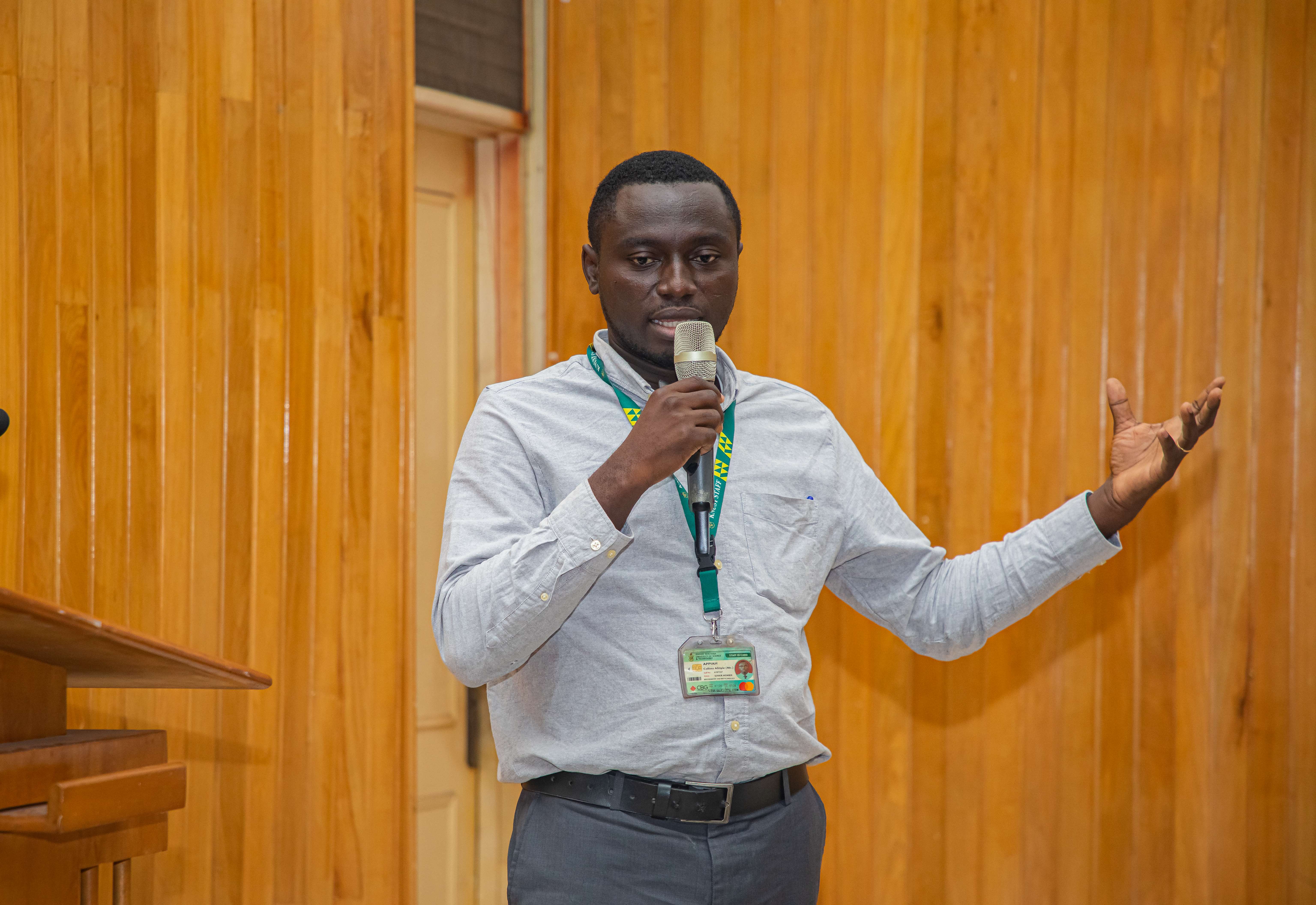
At the end of this study, it is expected that the data generated will help fill the knowledge gap on the effects of Bridelia tea consumption on oxidative status in PWT2D. Findings from this study have the potential to add value to this locally-produced tea that could boost its utilisation in Ghana, and enhance the local economy. This study is a collaboration between the Department of Nutrition and Dietetics, University of the Free State (UFS), South Africa, the Department of Biochemistry and Biotechnology, KNUST and the CPMR, Mampong-Akuapim. The research project is being supported with partial funding from the Department of Nutrition and Dietetics, UFS, South Africa and the CPMR, Mampong-Akuapim.
During the question-and-answer period, the audience engaged with the presenters. The chairman gave his closing remarks, being thankful to the presenters and the faculty members who participated in the seminar. He expressed his appreciation to the Seminar Committee Members for spearheading this educative and interactive program

